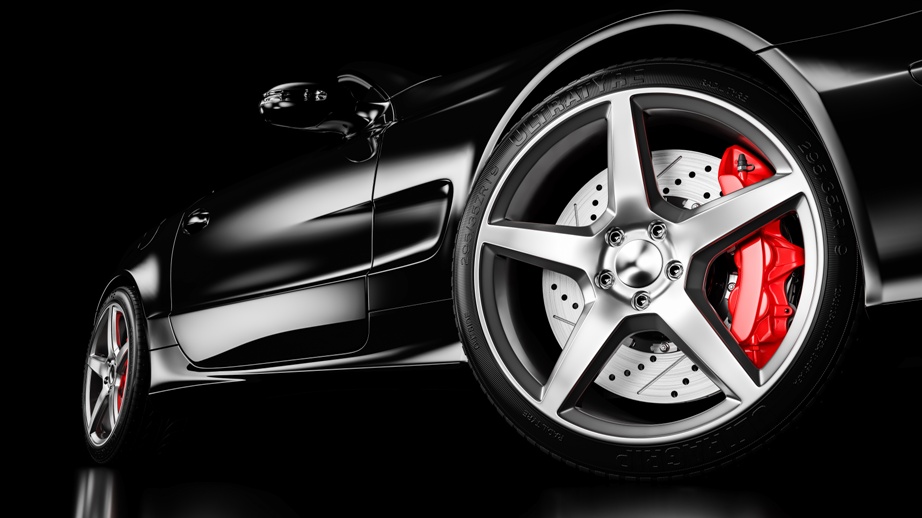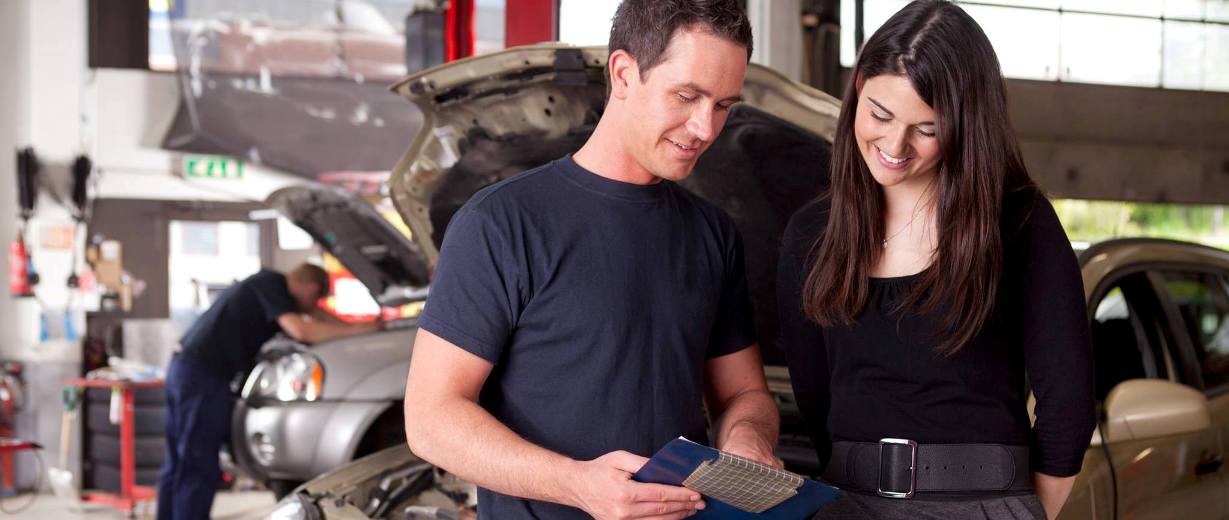Wondering Why Brake Pads Make Noise?
How well do you know your vehicle? Knowing how your vehicle operates and what you should be listening for will help you maintain your vehicle so you are driving as safe as possible. Fully functioning brakes are the most important safety issue. But how do you know when brake rotors need to be replaced? Why do brake pads make noise and what does it mean? Is it time to replace the calipers? Ask the brake repair specialist at your preferred auto shop for help answer your questions.
So why do brakes pads make noise? When you step on the brake pedal, the calipers cause the brake pads to clamp down on the brake rotors. The pressure on the rotors prevents them from spinning, which then brings your car to a stop. As the pads wear down and get thinner, a small metal tab contacts the rotor surface like a needle on a vinyl record to warn you it’s time for new pads. A continuous high-pitched squeal, while you’re driving, is usually the sound of the wear indicator saying it’s time for new brake pads.
If the brake rotor has worn unevenly (warped), the brake pads cannot press flat against the rotor when the brakes are applied. This can cause vibrating and a chirping sound. If your brake pads are not of good quality, they can become noisier than the more expensive, but higher quality, brake pads. A grinding sound usually means that the brake pads have worn away, and now the backing plates on which they were mounted are being squeezed against the rotors. This metal-to-metal contact means that you will need to replace the rotors, as well — and that you probably ignored some earlier warning signs of brake wear. Some noise can also be caused by loose or sticking calipers.
Other types of brake noise will require an inspection to diagnose the problem. Your brakes may only require cleaning, lubrication, or an adjustment. But because good brakes are crucial for driving safely, have an expert tire repair technician inspect and diagnose your vehicle’s brakes, at least every six months.
Need to know more about brake rotors and brake pads? Contact our ASE-certified technicians at Rebel Automotive, a certified brake repair shop, for more information about why brake pads make noise and to schedule an appointment. Our auto shop serves vehicle owners in Henderson, NV, Las Vegas, NV, and North Las Vegas, NV.

How well do you know your vehicle? Knowing how your vehicle operates and what you should be listening for will help you maintain your vehicle so you are driving as safe as possible. Fully functioning brakes are the most important safety issue. But how do you know when brake rotors need to be replaced? Why do brake pads make noise and what does it mean? Is it time to replace the calipers? Ask the brake repair specialist at your preferred auto shop for help answer your questions.
So why do brakes pads make noise? When you step on the brake pedal, the calipers cause the brake pads to clamp down on the brake rotors. The pressure on the rotors prevents them from spinning, which then brings your car to a stop. As the pads wear down and get thinner, a small metal tab contacts the rotor surface like a needle on a vinyl record to warn you it’s time for new pads. A continuous high-pitched squeal, while you’re driving, is usually the sound of the wear indicator saying it’s time for new brake pads.
If the brake rotor has worn unevenly (warped), the brake pads cannot press flat against the rotor when the brakes are applied. This can cause vibrating and a chirping sound. If your brake pads are not of good quality, they can become noisier than the more expensive, but higher quality, brake pads. A grinding sound usually means that the brake pads have worn away, and now the backing plates on which they were mounted are being squeezed against the rotors. This metal-to-metal contact means that you will need to replace the rotors, as well — and that you probably ignored some earlier warning signs of brake wear. Some noise can also be caused by loose or sticking calipers.
Other types of brake noise will require an inspection to diagnose the problem. Your brakes may only require cleaning, lubrication, or an adjustment. But because good brakes are crucial for driving safely, have an expert tire repair technician inspect and diagnose your vehicle’s brakes, at least every six months.
Need to know more about brake rotors and brake pads? Contact our ASE-certified technicians at Rebel Automotive, a certified brake repair shop, for more information about why brake pads make noise and to schedule an appointment. Our auto shop serves vehicle owners in Henderson, NV, Las Vegas, NV, and North Las Vegas, NV.


